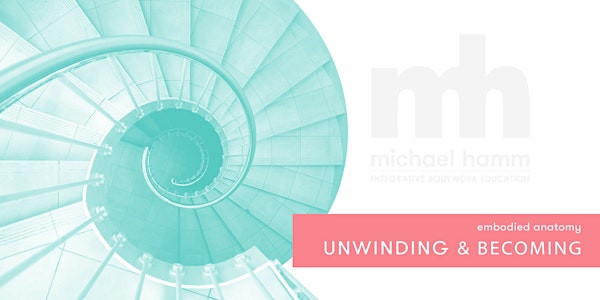NOTE: All classes can be attended online or in-person, or can be viewed on your own time.
All attendees will receive pre-class content, live class recording, supplementary materials, and a follow-up quiz for CE credit.
-----------------------------
Unwinding is a deep mystery for the embodied practitioner. Why do humans (and other animals) intuitively go into spiral wave-link motion? Why does it sometimes bring relief from pain and static body image? This class is about the neuroscience and therapeutic uses of Unwinding.
Whether you study martial arts, yoga, physical medicine, or somatic psychotherapy, you will sometimes see a person reach a state of relaxation or openness that is followed by a semi-voluntary ‘unwinding’ motion. What accounts for this behavior in the nervous / fascial systems?
In many movement traditions and therapeutic modalities, there are practices that intentionally cultivate such movement for symbolic expression or relief of discomfort. What are the common threads in these methods? What can we meaningfully draw into our own work?
These are the questions that drive this dynamic synthesis of Unwinding practice.
You will learn:
- Movement Cues that facilitate Unwinding.
- Autonomic Safety Cues that create trust and foster agency.
- Fascial embryology and Birth motions that shape unwinding behavior.
- Ascending Reflex Systems that drive unwinding behavior.
- Therapeutic uses of unwinding: Self, Guided, and Manually assisted
Whether your interest in embodiment is clinical, creative, expressive, or exploratory, this course will deepen your perceptual skills. Join a diverse mix of embodied practitioners in this fun and fascinating class!
BACKGROUND:
Embodiment is an exciting new field of study, with numerous useful approaches. For our purposes we define it as “The skill of perceiving, identifying with, and expressing the internal state of the body in the present moment.”
To speak in a grounded way about this subject, it helps to develop artful connections between different scientific modes:
From the perspective of embryology, how did this body form itself in the first place? What are the deep kinships between the body’s various tissues, and can awareness of these kinships instigate a richer experience of them?
From the perspective of somatic psychology, embodiment depends on certain conscious and subconscious processes. Are you aware of sensory changes in your body? Do you respond to them as gifts, as nuisances, as threats? Are you able to relate dynamically with other bodies, and with space?
From the perspective of neuroscience, the key processes are interoception, proprioception, and affective self-regulation. Where is the body in space? What are its physiologic signals? How does the brain integrate what it feels and how it feels about that information?
And perhaps most importantly → Under what conditions do these brain systems learn/adapt? There is tremendous complexity in this field, but we can draw some careful inspiration for our daily embodiment practice.
For more background, see the linked research articles!
• The Insular Cortex, by N Gogolla
• From Maps to Form and Space: Touch and the Body Schema, by Medina and Coslett
Continuing Education Certificate
This 4-hour Continuing Education class is open to clinicians, movement teachers, somatic educators, and artists. It meets the WA state CE requirements for physical therapy and massage therapy.
